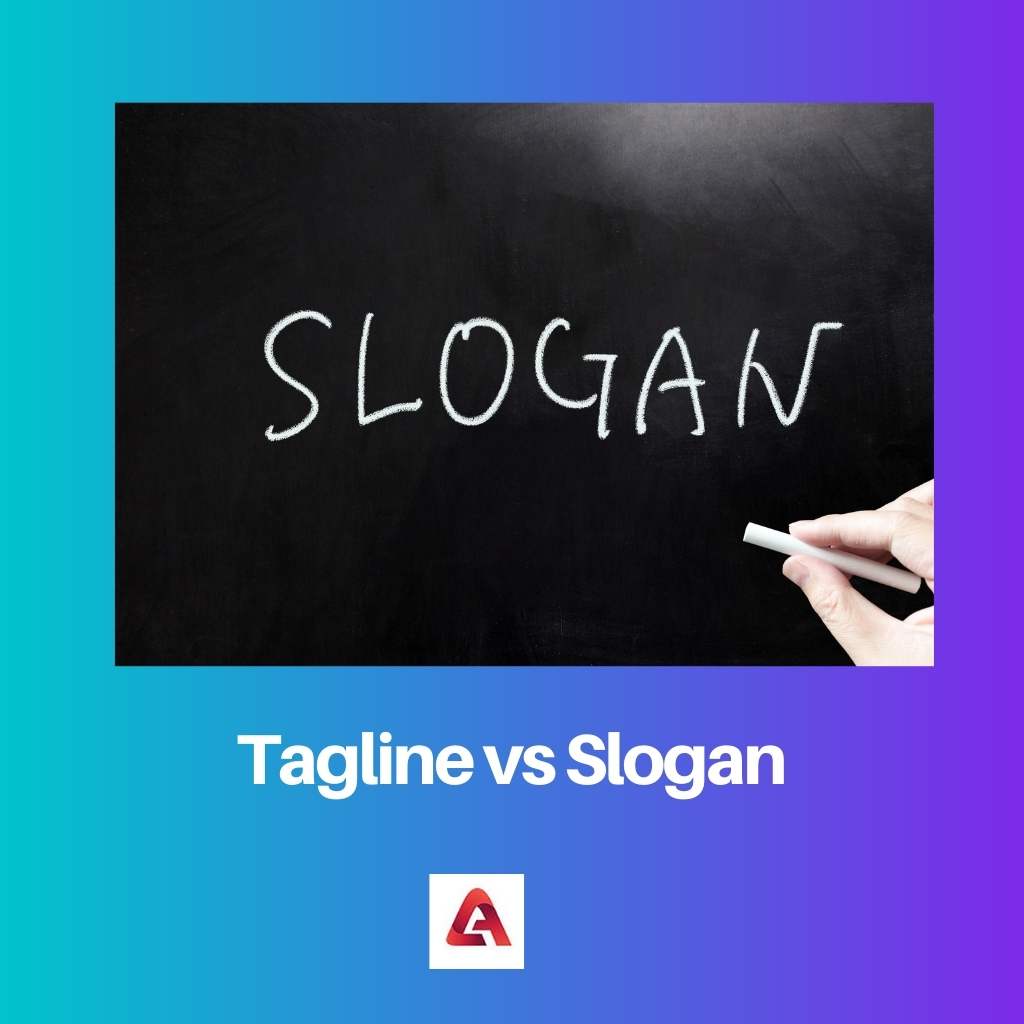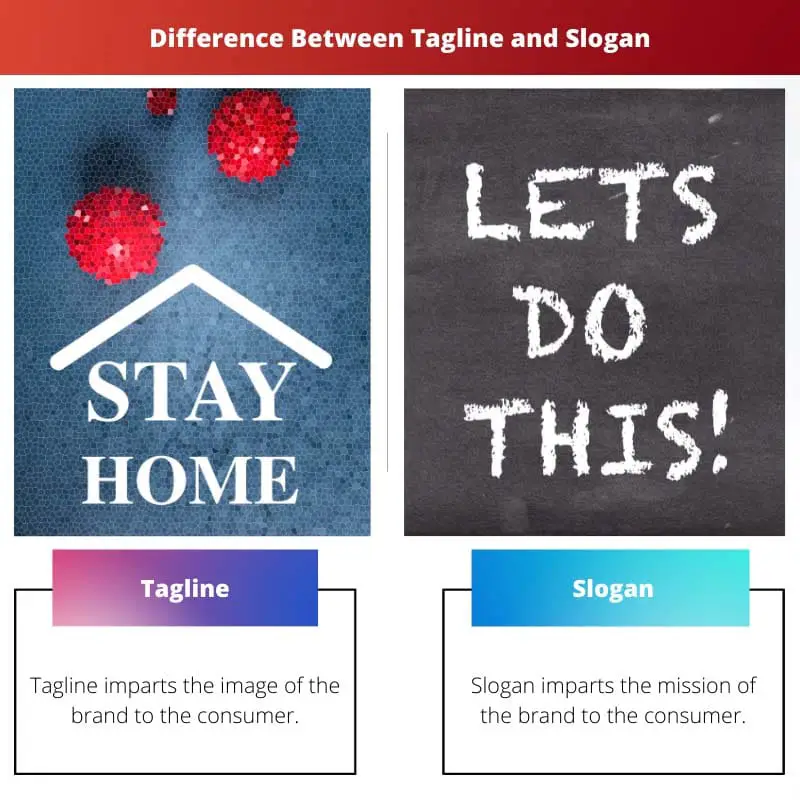Companies adopt various strategies to communicate with consumers. The most effective way of expressing this is by adding some text along with the logo of the brand.
These texts can be further divided into two major types, which are taglines and slogans. Both strategies have distinct differences.
Key Takeaways
- Taglines are short, catchy phrases representing a brand’s identity, while slogans focus on promoting a specific product or campaign.
- Taglines are enduring and rarely change, whereas slogans can be adjusted or replaced for different marketing initiatives.
- Slogans aim to persuade consumers to choose a particular product, while taglines create an emotional connection with the brand.
Tagline vs Slogan
A tagline is a memorable phrase that is used to symbolize a brand and concisely express its value proposition. A slogan is a short and memorable phrase that is used in advertising and marketing materials to promote a specific product or campaign.

The tagline is mainly used in entertainment with a dramatic effect and consists of short text. The tagline can promote marketing and advertising material of the context.
The tagline is associated with the piece and the product, not just with any particular event’s concept. The tagline does not change if the information about the piece changes.
While, Slogan is a phrase or motto which is written in a memorable form for commercial, clan, political, or religious, purposes to express an idea or goal of the context.
The slogan can help in improving the likeability of a brand to the audience. Slogan imparts the mission of the brand to the consumer.
Comparison Table
| Parameters of Comparison | Tagline | Slogan |
|---|---|---|
| Purpose | Tagline imparts the image of the brand to the consumer | Slogan imparts the mission of the brand to the consumer |
| Types | Descriptive, provocative, specific, imperative, and superlative | Product-specific, category-specific, use-case specific, and consumer-specific |
| Function | Tagline focuses on public relations | Slogan focuses on advertising |
| Duration | Taglines are used for longer periods of time and are not product-specific | Slogans are used for a shorter period of time and our product or campaign-specific |
| Length | Taglines are shorter phrases of a maximum of seven to eight words | Slogans are longer phrases of a maximum of ten to twelve words |
What is Tagline?
Taglines are reiterated phrases that are used for products, individuals, brands, social groups, or to present a thought. The tagline is mainly used in entertainment with a dramatic effect and consists of short text.
The tagline can promote marketing and advertising material of the context. The tagline is also known as a tagline, tag, landlines, straplines, baselines, signatures, pay-offs, and claims in various places.
A tagline aims to sum up the entire concept, function, and job of the product or brand with a dramatic audio or visual phrase. The tone of the tagline is strong enough to create a place in the memory of the audience regarding the product.
The tagline serves as a conclusion as well as an introduction to the audience for organizations.
The tagline is associated with the piece and the product, not just with any particular event’s concept. The tagline does not change if the information about the piece changes.
Taglines are mostly present next to the logo and are one of the very first things that are noticed by the audience. The tagline can also act as a supplementary expression.
The most common form of such expression is to promote television programs or any motion picture.
The tagline can act as an explanatory subtitle. Like on the packaging of a CD or DVD of music and videos, the poster contains a tagline apart from the actual title.
Tagline acts as a conceptual message in a condensed form. They are written in an easily memorable form.

What is Slogan?
A slogan is a phrase or motto which is written in a memorable form for commercial, clan, political, or religious purposes to express an idea or goal of the context.
Slogans are concise phrases and have attributes to appeal to the audience. Slogans also play a vital role in creating an impression of a brand on the receiver.
The term ‘slogan’ derivation is from a Gaelic and Irish term called “Slogorn”. Slogans gained popularity in the Middle age as they were extensively used as passwords to recognize people in battle or at night.
The slogan can help in improving the likeability of a brand to the audience. The slogan emphasizes the advantages of a service or product that is being portrayed.
Slogan provides the opportunity for any brand to show its creativity and create a positive impact on the audience. A brand’s image is created by three main factors: name, logo, and slogan.
A slogan can convey the reason for its existence and the company’s overall mission to the audience. Slogan helps in providing an idea about what the company can offer.
The combinations that are used in slogans are persuasion and descriptive type. Campaigns for specific products can be improved through slogans.
Slogans can also capture and denote the emotion related to a service or a product. The slogan also helps in building a relationship between both ends.

Main Differences Between Tagline and Slogan
- Taglines aim to raise awareness about the brand, while slogans aim to send the products or services of the brand.
- Taglines do not highlight the mission of the brand or business, while slogans highlight the entire mission of the brand or business.
- The main job of the tagline is to improve public relations, while the main job of a slogan is to advertise and market the product to the audience.
- Taglines are not made for a specific product or campaign, while slogans can be made for a specific product or campaign.
- Tagline is created in the early stages of brand development, while slogans can be created whenever a company runs a marketing campaign.





